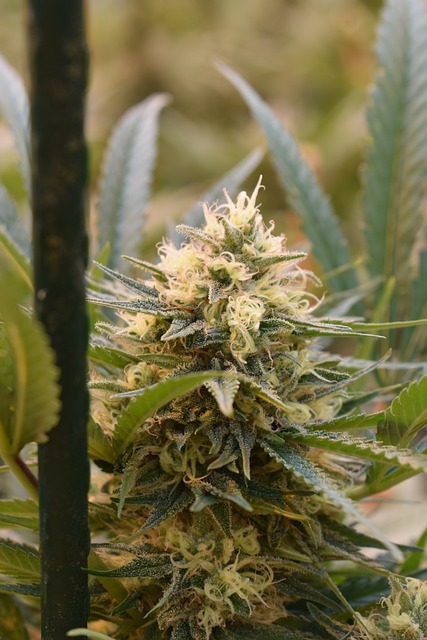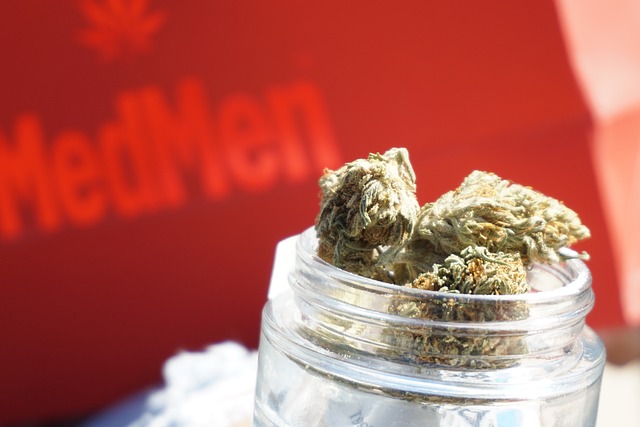
THCA, a non-psychoactive cannabinoid and precursor to THC, has garnered attention across Europe for its potential therapeutic benefits, including anti-inflammatory and analgesic properties. In several EU nations such as the Netherlands, Italy, Germany, and Greece, there are established regulatory frameworks that permit the use and sale of THCA products for medicinal purposes. The legal status of THCA within the EU varies by country, necessitating awareness of local laws to avoid legal penalties. While THCA does not produce a 'high' like THC, it's important to note potential side effects such as dry mouth and red eyes, with more severe reactions occurring in sensitive individuals at higher doses. The European Union is working on guidelines for the safe consumption of THCA products, emphasizing the need for quality control and responsible use amidst the growing cannabinoid market. Users are advised to consult healthcare professionals before use, especially if they have pre-existing health conditions or are concurrently using other medications, to ensure safety and adherence to regulations. This landscape underscores the importance of staying informed on the evolving legal standing of THCA in EU countries.
exploring the multifaceted nature of THCA (Tetrahydrocannabinolic Acid) flower within the European Union, this article delves into its nuanced legal standing across different member states and elucidates the spectrum of side effects associated with its consumption. From understanding the regulatory framework that governs its use to recognizing the potential therapeutic properties and adverse reactions, readers will gain a comprehensive perspective on THCA flower’s impact in EU countries.
- Exploring THCA Flower: Understanding Its Legal Status and Side Effects in EU Countries
- Navigating the Effects of THCA Flower: Potential Benefits and Adverse Reactions
Exploring THCA Flower: Understanding Its Legal Status and Side Effects in EU Countries

In recent years, the conversation surrounding cannabinoids and their derivatives has gained significant traction across the European Union. Among these, Tetrahydrocannabinolic Acid (THCA) stands out due to its potential therapeutic properties and its close relation to THC, a psychoactive compound well-known for its effects. The legal status of THCA flower varies within EU countries, with regulations differing from one nation to another. In countries like the Netherlands, Italy, Germany, and Greece, there is a more lenient approach towards the use and sale of products containing cannabinoids, including THCA, often for medicinal purposes or under specific regulatory frameworks. However, it’s crucial for consumers to be aware of the local laws governing cannabis-related substances because non-compliance can lead to legal repercussions.
When considering the side effects associated with THCA flower, it’s important to approach the topic with a scientific lens. While THCA itself is non-psychoactive and is believed to possess anti-inflammatory and analgesic properties, its conversion into THC through heat or chemical processes can lead to psychoactive effects. Reported side effects may include dry mouth, red eyes, altered mood, and potential psychotomimetic effects in sensitive individuals. Additionally, there are interactions with other medications to consider, and it’s advisable for individuals to consult healthcare professionals before incorporating THCA flower into their wellness regimen, particularly if they have pre-existing health conditions or are taking other medications. Safety and compliance with local regulations should always guide the use of such products within EU countries.
Navigating the Effects of THCA Flower: Potential Benefits and Adverse Reactions

THCA, or tetrahydrocannabinolic acid, is a non-psychoactive cannabinoid found in the cannabis plant that is the precursor to THC, the primary psychoactive component. As interest in cannabinoids grows, THCA has garnered attention for its potential health benefits. In EU countries where THCA-rich hemp products are legal, consumers are exploring its properties. Research suggests that THCA may offer therapeutic effects including anti-inflammatory, anti-nausea, and neuroprotective properties without the psychoactive ‘high’ associated with THC. However, like any substance, it is not without potential adverse reactions. Users may experience mild side effects such as dry mouth or red eyes, which are common with cannabis consumption. More severe reactions can include anxiety or paranoia in susceptible individuals, particularly at higher doses. It’s crucial for users to start with low doses and be aware of their body’s response when incorporating THCA into their wellness routine. As the legal landscape evolves, EU countries are setting guidelines to ensure safe consumption practices, emphasizing the importance of quality control and responsible use in the burgeoning market for cannabinoid products.
In conclusion, the exploration of THCA flower’s legal status and side effects across EU countries reveals a complex landscape where regulations vary, yet its potential therapeutic properties and adverse reactions are increasingly under scrutiny. As the legal framework continues to evolve, it is crucial for consumers and healthcare providers to stay informed on the latest research and regional policies governing THCA flower. Users should approach its consumption with caution, considering both its reported benefits and possible side effects. With ongoing studies and policy discussions, a clearer understanding of THCA’s role in wellness may emerge, providing further guidance for those interested in its effects within the legal confines of EU countries.






